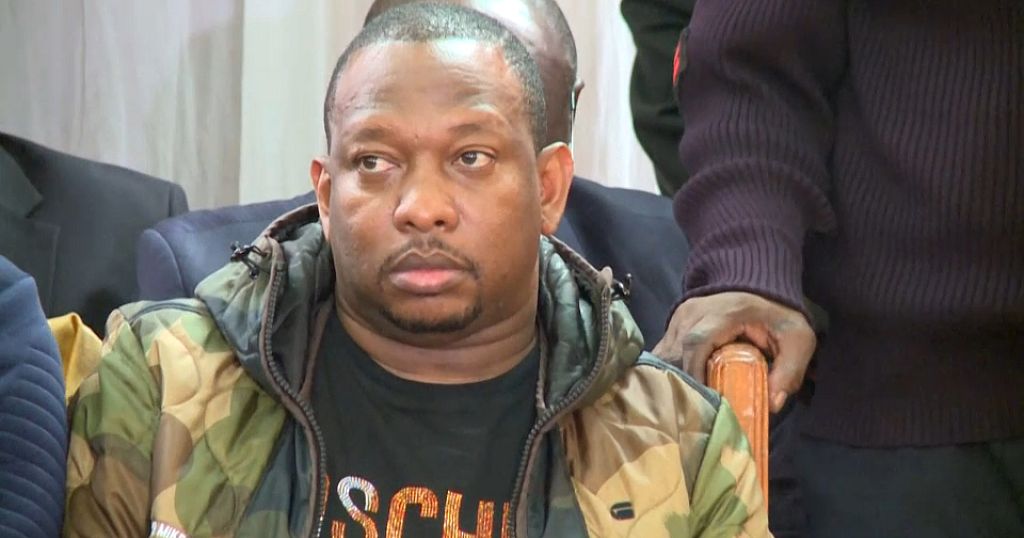On Monday, the Daily Nation published a story in its sports section that said Harambee Stars would be playing the French national football team on June 6 in Paris. It was also run by Nairobi News, an online NMG publication.
Nairobi News later published another story with the headline, “Here is how you got duped on April Fools’ Day”.
It said: “No, it’s not true that Harambee Stars will be playing the French national football team. Not now, not any time soon! Nairobi News and Daily Nation Sport only published the story in the spirit of April Fools’ Day.
So, if you are an ardent fan of the Kenyan national team, breathe in, breathe out. We gotcha!”
In other words, the story was fabricated; a hoax. It was meant to fool readers in the name of having fun on April Fools’ Day.
Perhaps the story was harmless fun. Maybe more so than the “nuclear” story, “Envoys oppose N. Korea missile base in Kenya”, published by the Nation on April 1, 2017.
It opened with the words: “A secret plan to allow North Korea to station a missile base in northern Kenya can be revealed today. The base will house at least 40 inter-continental ballistic missiles capable of reaching European capitals.”
The story is still available online but carries the Editor’s Note: “This article was meant for April Fools’ Day and was not intended to mislead readers as some have reacted.”
According to Western tradition, April 1 is a day on which practical jokes, pranks and hoaxes are tolerated.
The ‘victims’ are “April fools”, who are duped and tricked. The aim is to make them feel or look stupid if they don’t ‘discover’ the trickery.
The April Fools’ Day tomfoolery is all done as harmless fun. However, the practical jokes, hoaxes and pranks vary in their sophistication.
Often, they are amateurish and do more harm than good. And when they take the form of news stories the potential for risking harm or embarrassment is greater.
They reach mass audiences and it’s not always easy to take them for what they are intended to be. Sample the following three recent examples:
“Former Jubilee vice-chairman David Murathe yesterday phoned Deputy President William Ruto and pleaded for his forgiveness.”
“Singer Esther Akoth, aka Akothee, famous for her afro-beat songs that are usually accompanied by explicit dance moves, will be named Art, Culture and Heritage Cabinet Secretary in an impending Cabinet reshuffle.
“There was drama in Nairobi last night when the Sonko Rescue Team was called in to rescue President Uhuru Kenyatta’s limousine, which had broken down along Uhuru Highway.”
For the media, April Fools’ Day stories are often problematic and, on balance, often do more harm than good. For journalists are in the business of spreading information, not misinformation.
Truth and credibility are the journalist’s greatest commodities. He/she should not do anything to erode them.
People rely on the media for news, even on April 1. Thus, April Foolishness has no place in serious journalism. Pulling April Fools’ Day tricks on readers and listeners is unethical and unprofessional.
However, when April Fools’ Day stories are sophisticated, make a significant point and are truly harmless and entertaining, they may be used since one of the functions of the media is to entertain.
But this rarely happens. Most April Fools’ Day pranks are mere mischief, foolery, idiocy or buffoonery and are aimed at making readers feel duped and foolish.
Even when they are entertaining, they violate core journalistic values of accuracy and truthfulness and, therefore, erode public trust and credibility in the media.
Another reason why the media should not participate in first-of-April hoaxes is that readers my disregard real news stories just because they think they are pranks.
This can have tragic consequences. For example, before the April 2, 2015 Al-Shabaab attack on Garissa University in which 147 people, mostly students, were killed, posters had been put up around the campus warning about an imminent attack. But they were dismissed as an April Fools’ prank.
Journalists should not mess their audiences; they should not write pranks as news, even in the name of entertainment.
If they are to remain credible and trusted, they must not participate in April Foolishness.

 General News3 days ago
General News3 days ago
 General News4 days ago
General News4 days ago
 General News3 days ago
General News3 days ago
 General News2 days ago
General News2 days ago
 General News23 hours ago
General News23 hours ago

